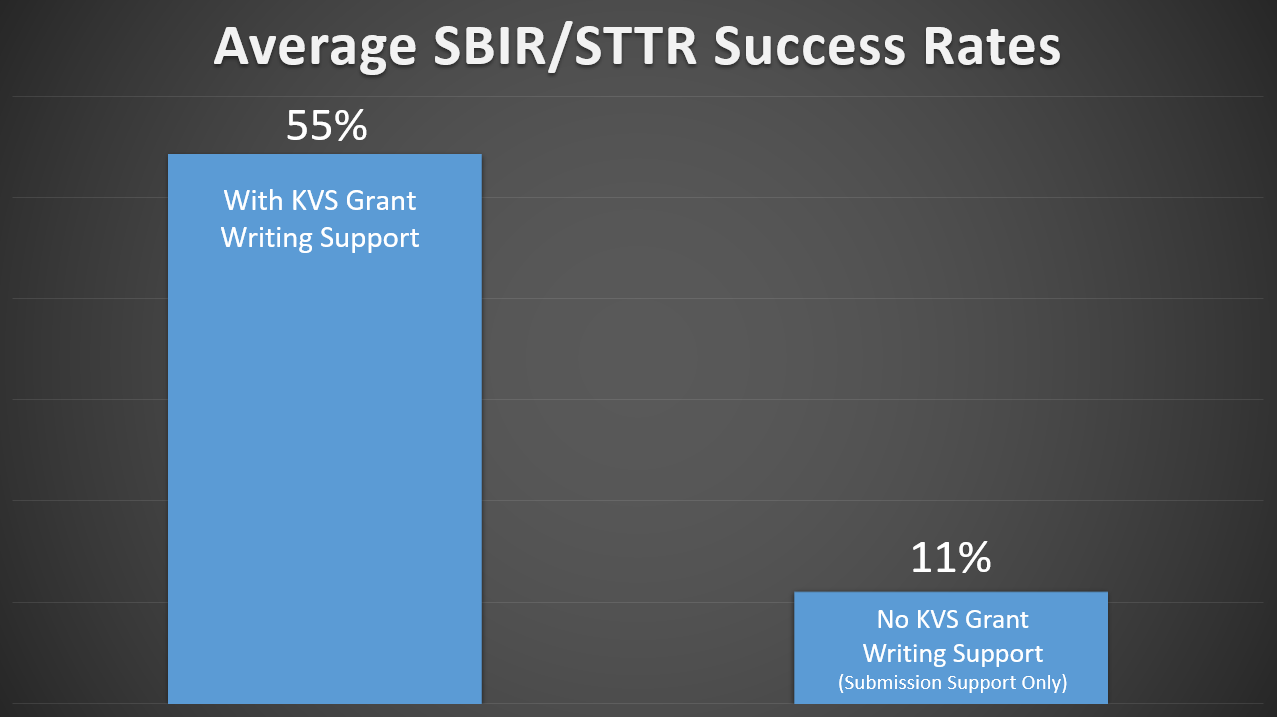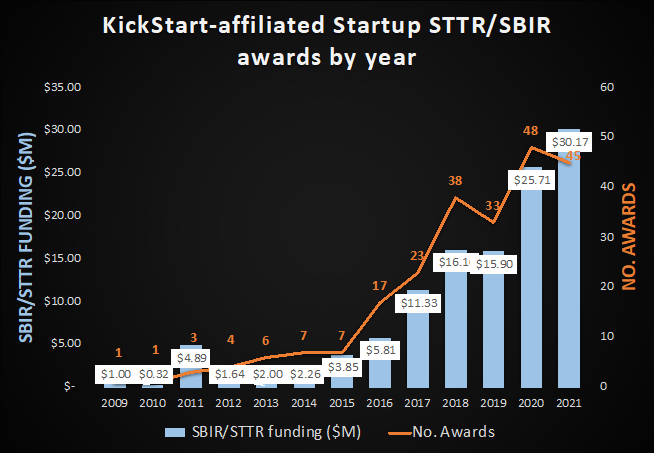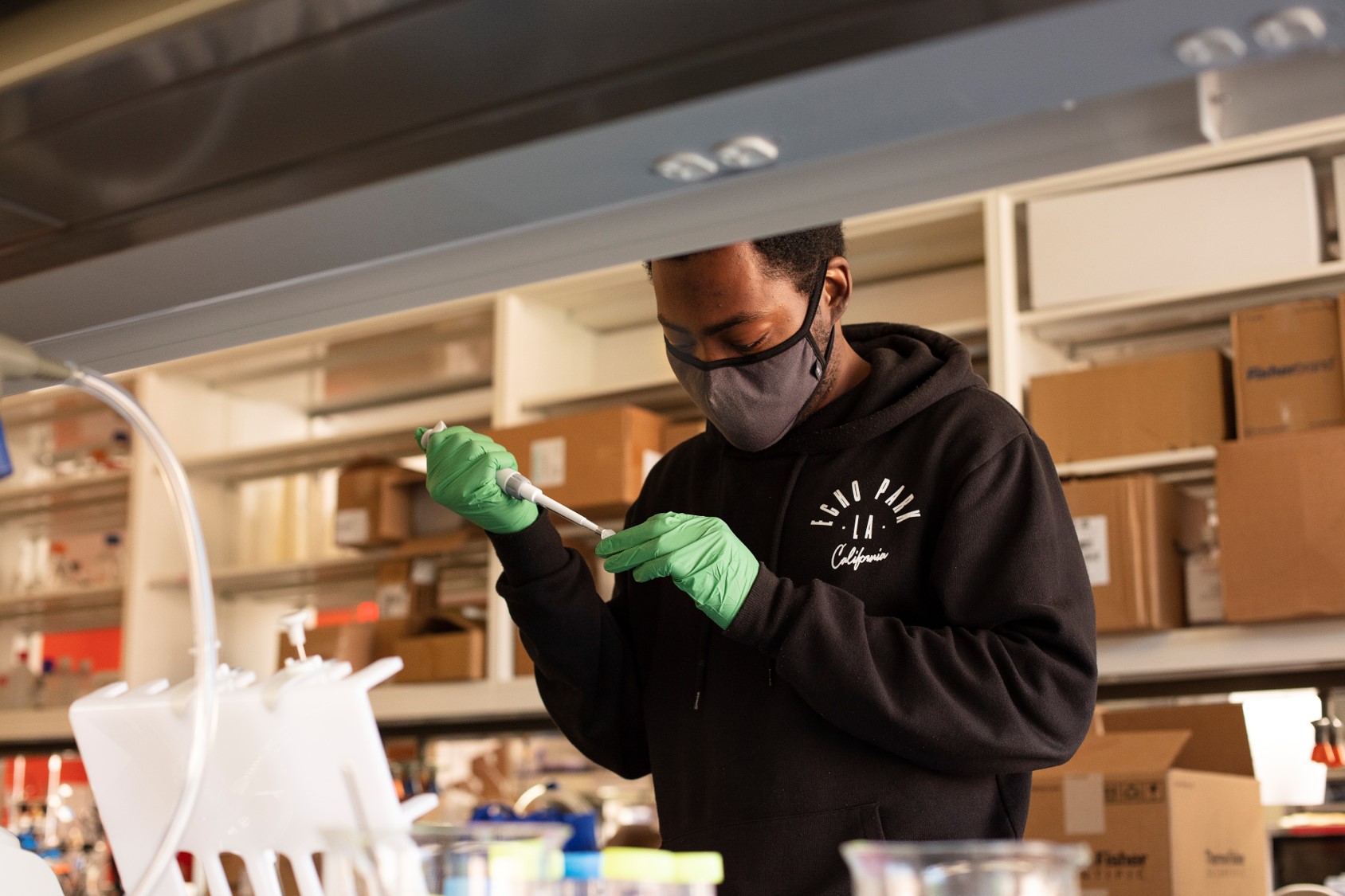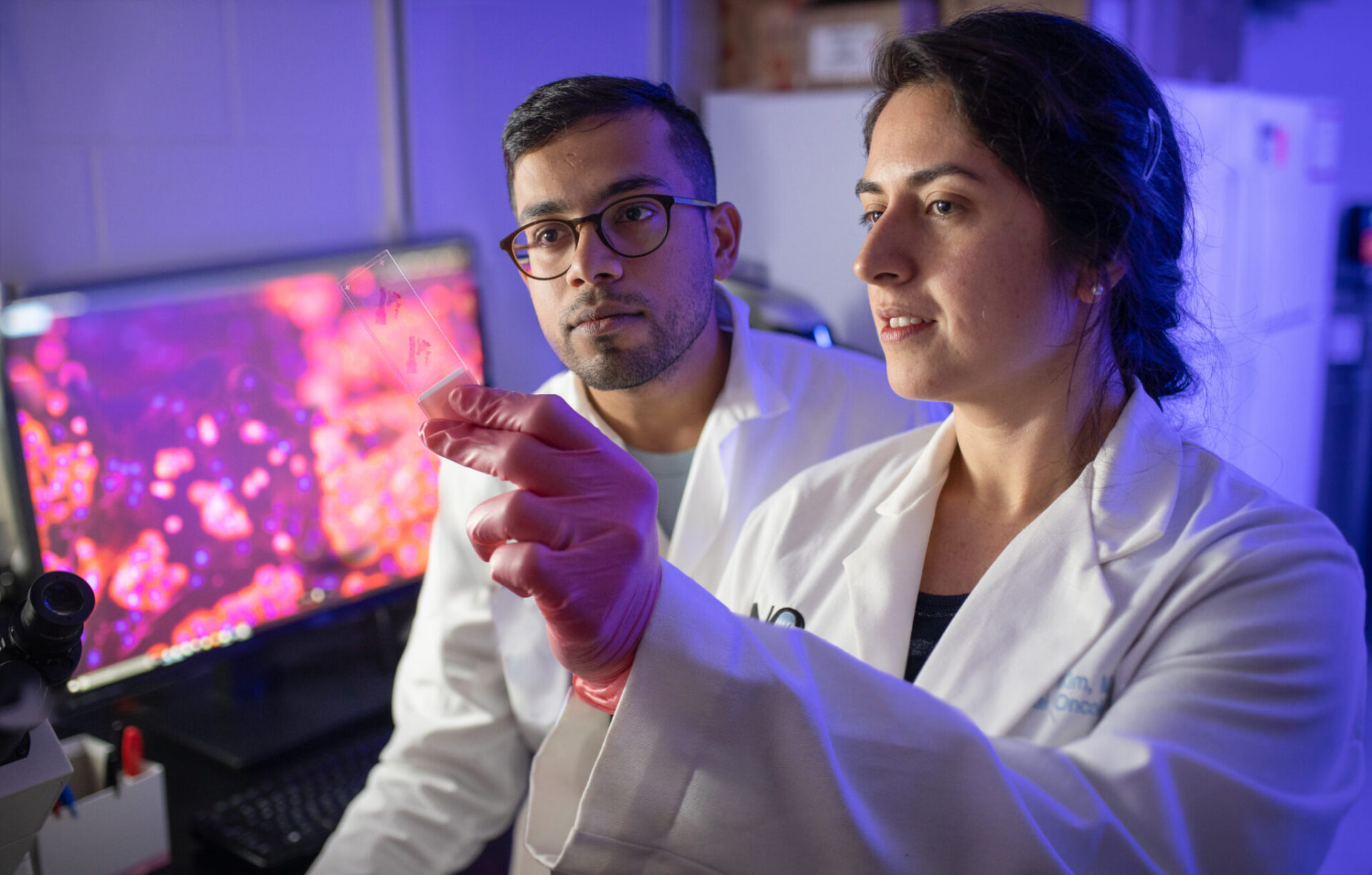For many startups at the University of North Carolina at Chapel Hill, seed funding is vital and gives them the best chance for success – especially in the early phases of growth. Two well-known federal programs that provide seed funding are the National Institutes of Health Small Business Innovation Research (SBIR) and Small Business Technology Transfer (STTR) programs. These grant programs encourage small businesses to engage in federal research/research and development with the potential for commercialization.
5x
higher success rate for startups using KVS grant writing for SBIR/STTR grants
$130M
in SBIR/STTR grants received by KickStart companies since 2009
$30M
in SBIR/STTR grant wins by KickStart companies in 2021 alone
For Carolina’s early-stage, research-based startups, applying for this government funding opportunity can help get their technologies closer to market. In that sense, it’s a no brainer. But the application process can feel daunting and ultra-competitive. Enter KickStart Venture Services, a department in Innovate Carolina’s Office of Technology Commercialization. Innovate Carolina is UNC-Chapel Hill’s central team for innovation, entrepreneurship and economic development. In addition to providing mentorship, accelerator space and industry connections to startups, KickStart helps UNC faculty founders as they pursue and apply for SBIR / STTR funding.
“Seed funding is often the first funding that startups receive to de-risk their technologies before they can get investments from a venture capitalist, angel investor or strategic partner,” says Judy Prasad, assistant director of KickStart. “It can help validate a proof-of-concept or idea, and the most efficient way to do that is to apply for an SBIR or STTR grant.”
Luckily for UNC-based startups, KickStart’s track record for helping companies secure the grants is outstanding. Since 2009, UNC startups that used Kickstart’s grant writing services for SBIR/STTR grant submissions have achieved a 55 percent success rate compared to only an 11 percent success rate for those companies that did not.
Strategy Session: NIH SBIR/STTR Phase 1 Funding
The SBTDC, in collaboration with UNC-Chapel Hill, Duke University and NC State University, will review the NIH SBIR/STTR process in a short four-hour session. If you’re planning to submit a Phase 1 (or a Phase 2) SBIR/STTR to NIH in 2023, this is a free session to kickstart the process.
Register for webinar
“We’ve seen a dramatic increase in the success of proposals being funded when grant writers help with the grant proposal,” says Prasad. “We’ve learned that to increase the odds of a young company’s success with their first grant submission, having the assistance of a successful grant writer is vital. That’s why we offer grant writing support to companies to navigate the SBIR/STTR application and submission process.”
Since 2009, more than $130 million in SBIR/STTR funding has been awarded to KickStart companies. That figure continues to increase significantly each year – from $1 million in SBIR/STTR grants awarded in 2009 to more than $30 million in 2021.
“We’re now seeing great success stories of Carolina startups that have gone on to raise dilutiuve funding, are being acquired, or have brought products to market,” says Mireya McKee, director of KickStart. “It’s very rewarding to see, and I think those startups that are getting their first grants today are going to be wonderful success stories five, ten years down the line. Already, the companies that we have supported have been awarded $8.9M and an additional $21.6M in follow-on SBIR/STTR funding. So we expect KickStart’s support services – especially our grant writing services – to continue to grow.”

“We’ve learned that to increase the odds of a young company’s success with their first grant submission, having the assistance of a successful grant writer is vital. ”
Judy Prasad, PhD, assistant director of KickStart Venture Services
Many successful UNC startup companies, including Triangle Bio, AnelleO, Enfuego Therapeutics, Eldec Pharmaceuticals and Mizar Imaging, used KickStart’s services to obtain SBIR/STTR grants.
“It’s great to see that over time there are more UNC startup companies doing translational work, and faculty members are more aware of Kickstart as a resource to actively seek funding,” says McKee. “Over the years, KickStart and the university have become more engaged with commercialization activities, and the funding for them continues to increase. The companies that have been there since the beginning are getting more funds, so they’re getting bigger and becoming successful, and all on applications of their own.”

Comparison of average success of applications where founders received KickStart grant writing services vs. those that did not.

The number of SBIR/STTR grants awarded to KickStart companies continues to grow anually.
Want to learn more about the 2023 NIH Phase 1 SBIR/STTR proposal submission? In collaboration with UNC-Chapel Hill, Duke University and NC State University, the Small Business Technology Development Center is presenting an in-depth review of the process in a virtual session scheduled Nov. 14., 12:30-4:30 p.m.
Want to learn more about resources for research-based startups at UNC-Chapel Hill? Visit the KickStart Venture Services.

 | UNC-CH
| UNC-CH






